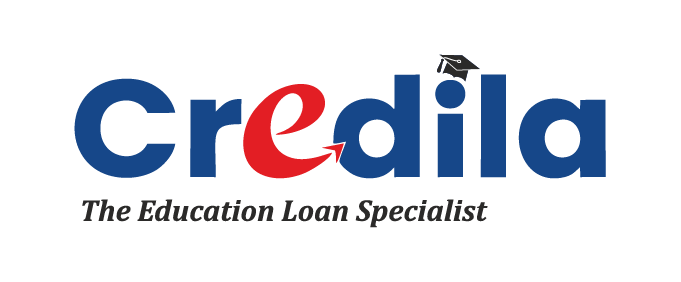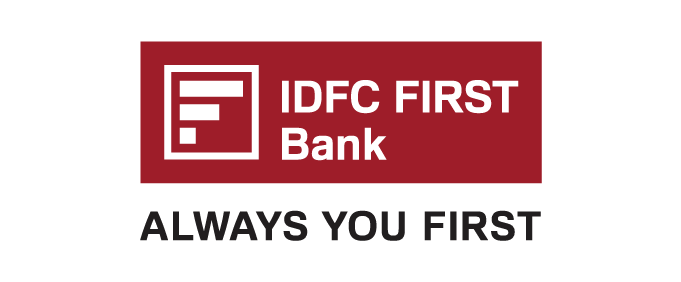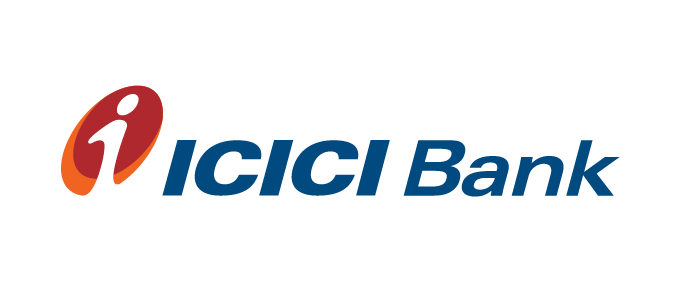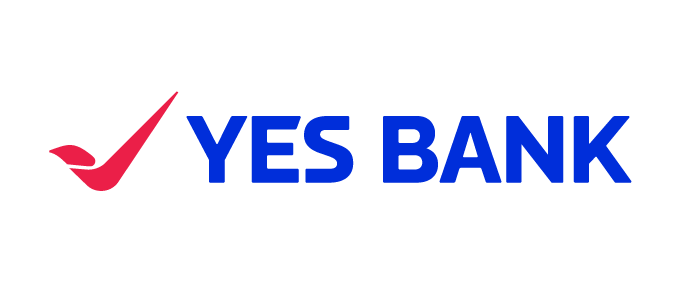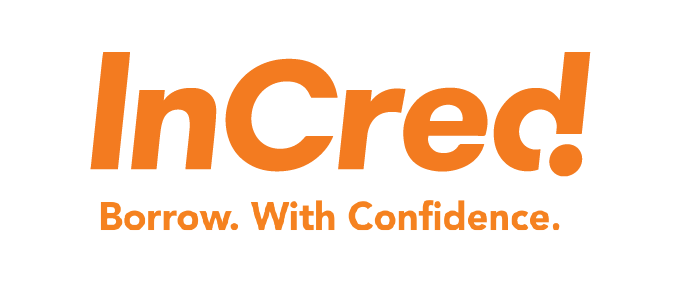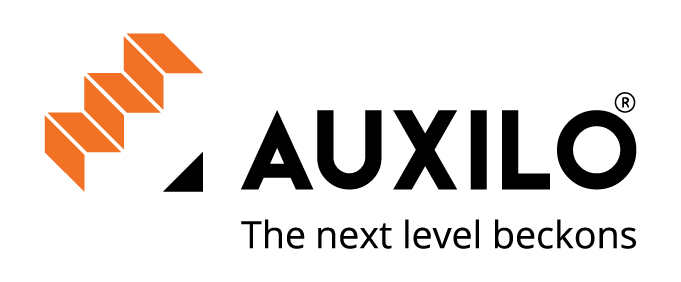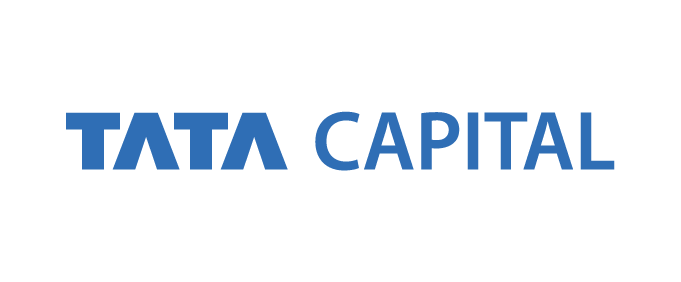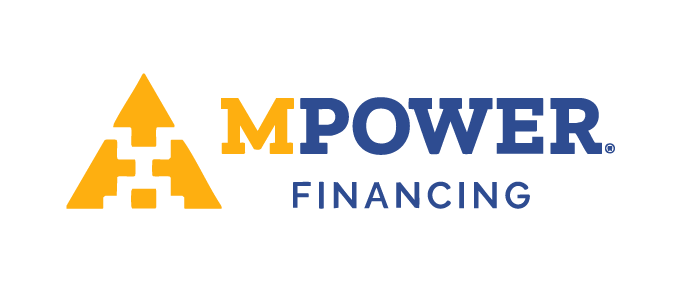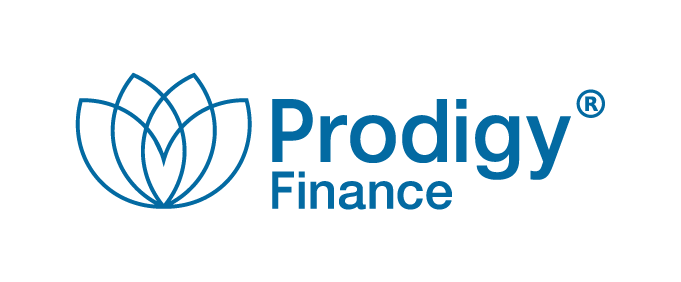Explore business analyst job descriptions and understand the responsibilities of one of today’s most coveted roles
Why Business Analytics Matters Today?
A major challenge faced by modern organizations, especially those scaling or diversifying is the need for data driven guidance in decision making. To effectively leverage data for informed decisions, it is crucial to first distinguish how business analyst job roles encompass three closely related yet distinct terms—Analytics, Analysis, and Analyst.
Analytics – Analysis – Analyst…. Wait… don’t they all mean the same thing? After all, they seem so similar!
If that thought crossed your mind, you’re not alone. These terms are often used interchangeably in everyday conversation. However, there are distinct differences between them—differences that can significantly impact discussions about careers, skills, or industries.
Let us break them down and establish a clearer understanding.
Analytics:
Refers to the systematic computational analysis of data utilizing statistical techniques and machine learning algorithms to identify trends and patterns. It is primarily computation-driven. When these methods are applied to business contexts use-cases, it is referred to as Business Analytics.
Analysis:
Is the examination of data or information in detail. Analysis may or may not involve analytics, and at times, some analysis may rely purely on human assessment. Thus, analytics for the most part would yield results that look black and white, but then, a human manager might look at them, or ‘analyse’ them, to interpret the underlying shades of grey.
An Analyst:
Is a professional who specializes in analysing data, processes or systems to provide insights, solve a problem or support decision making within an organization. Remember, it is analysis ,not merely analytics.
Thus, a Business Analyst is an expert who evaluates business processes, identifies needs, and proposes solutions to help an organization achieve its goals. To accomplish this, a Business Analyst may utilize Business Analytics or adopt non-analytics-based approaches, depending on business requirements
With that being said, let us now look at a few job descriptions for the role of a Business Analyst and the responsibilities the role encompasses.
To do this, we have gathered snippets of ‘Responsibilities’ from actual job descriptions posted by various companies on Indeed.com. This will help you understand the practical expectations a Business Analyst must meet while on the job.
Three Key Aspects of Business Analysts :
- Technology
- Analytics
- Business Processes
The third aspect, processes, is often managed and optimized through the first two. Business Analysts play a crucial role in aligning technology and analytics to establish efficient processes that drive positive business outcomes.
Depending on business requirements, organizations recruit Business Analysts with expertise in either technology or analytics. Now, let’s explore job descriptions that emphasize each of these two aspects.
Business Analysts Focusing on Technology
Business analysts in this category focus on developing software infrastructure that supports business operations. The following are examples of such job descriptions:
Business Analyst – Honda
Key Accountabilities
- Lead financial, accounting and resource management activities within the division Lead daily discussions with finance and resource management groups and lead activities to resolve any technical and administrative conflicts.
- Lead financial process innovation activities across the division
- Lead the implementation of best practices into the division from across HDMA
- Build relationships to cultivate process innovation
- Increase Manager and Supervisor efficiency through a strong financial, accounting and resource management supportive role
- Lead the coordination, planning and execution of the division-wide budget roll-up and serve as lead division budget coordinator
- Lead yearly, quarterly, and monthly division budget roll up and report to division leadership
- Lead Budget tool creation, process automation and ensure correct budget related analysis methods are in place to control budget proactively
- Responsible for the creation of PO creation and invoicing
- Lead purchasing process innovation activities across the division
- Lead the implementation of best practices into the division from across HDMA
- Build relationships to cultivate process innovation
- Increase Manager and Supervisor efficiency through a strong purchasing supportive roll
- Support the collection of key division-wide performance indicators and help flag gaps that may exist between planned vs. actual
- Support the fixed asset budget and reporting schedule coordination
- Support the division with general administration duties, as needed
- Lead small project management activities and iteratives
- Influence other divisional administrators and coordinate activities across divisions so that best practices are followed
Business Analyst – Sonnax Transmission
Essential Functions/Job Responsibilities:
- Work closely with internal clients to understand their business needs. Assist in analysis and documentation of as-is capabilities about business processes, resource efficiencies and technology. Identify opportunities to improve processes and help meet objectives via technology solutions
- Responsible for project planning including scope, tasks, deliverables, milestones and documentation.
- Provides user support and formulates ideas and recommendations regarding the use of these systems as well as enhancements.
- Review and analyze the effectiveness and efficiency of existing systems and develop strategies for improving or further leveraging these systems.
- Perform cost-benefit and return on investment analyses for proposed systems to aid management in making implementation decisions.
- Ensure compatibility and interoperability of in-house computing systems.
- Develop detailed business user requirements, system documentation and workflow procedures.
- Oversee the operation of systems, including system configuration options, job schedules and interface design.
- Conduct research and analysis into the nature, effect and results of system problems.
- Review requested system changes and develop detailed specifications for implementation, communicating system changes and issues to relevant constituents. •Ensure current and accurate system documentation; coordinates and/or performs testing of system modifications. Develop, provide or coordinate system training, educational tools and materials.
- Act as a liaison with business units, IT and outside vendors as appropriate in support ofthe systems, ensuring business unit needs have been satisfied.
- Ad-hoc analysis to support business queries and issue resolution
- Adherence to company processes and controls to ensure all solutions meet appropriate risk, security, compliance and technical standard requirements
Business Systems Analyst – Marathon Petroleum Company
Key Responsibilities
- Manages the definition of business processes in order to measure, analyze, improve and control the process being reviewed.
- Communicates effectively with stakeholders, aligning the understanding of
- requirements, and identifying cross functional changes/impacts of the specifications for solution delivery.
- Develops recommendations for appropriate systems alternatives and/or enhancements to current systems.
- Investigates business performance and other measures to gain insight and drive
- business planning: applies continuous iterative processes.
- Performs cost-benefit and return on investment analyses for proposed systems to aid management in making implementation decisions.
- Supports implementation of ways to improve working processes in the team. Supports monitoring the execution of IT service management practices around incident, Change, Problem and Solution Development Lifecycle (SDLC) delivery methodologies for improvement and collaboration, including more advanced configuration tasks.
- Coordinates test case development, execution and support of strategy creation for technology delivery.
- Plans, executes, and documents user stories, user feedback to support the development of prototypes and wireframes
CRM-IT Business Analyst – International Paper
The Job You Will Perform:
- Collaborate with business and IT partners to design, engineer, and deliver technology solutions that enable business capabilities and provide functionality for CRM and related processes for Sales, Marketing, and Service
- Capture, understand, and translate business requirements into functional
- documentation (Agile user stories, Waterfall functional specifications, business process flows) for IT development
- Lead design and discovery sessions to help business partners think about art of the possible and process improvements to help enable strategic commercial & profitability goals
- Research and understand user experience requirements and work with UI designers to create wireframes based on user-centered design
- Identify, document, and perform acceptance testing to ensure completeness and accuracy of solutions and regression testing to ensure stability of applications
- Configure applications to enable defined business processes
- Support enhancement requests, bug fixes, and functional business capabilities of multiple applications
- Participate in the development of reference documentation and training aids
- Participate in the business process redesign and documentation as needed for new and/or upgraded technology
- Research and influence the direction of CRM and related processes technologies and capabilities at International Paper
- Formulate and define systems, scope and objectives based on both user needs and a thorough understanding of business systems and industry requirements
- Assist with leading sprint release and project related planning activities
- Ensure timely resolution of issues by focusing on root cause analysis, engaging resources as needed, and implementing corrective action plans
- Additional duties as assigned
IT Business Process Analyst – T-Mobile
Job Responsibilities:
- Research, develop, and implement sustainable and repeatable procedures
- Identify gaps and re-engineer process inefficiencies relative to current procedures Support cross-functional partners to problem solve and implement solutions
- Develop subject matter expertise for multi-faceted problems and deliver simplified solutions
- Foster relationships with key cross-functional partners and internal stakeholders: establish strong partnerships to obtain desired results
- Assignments are generally highly complex in nature and will be in support of one or more of the following disciplines: Products, Sales/Retail, Customer Care Support, Technical Care Support, Billing, Supply Chain Operations, Product Management, Business Process and Cost-Benefit Analysis.
- Provides team consulting support on complex tasks.
IT Business Systems Analyst – Great Western Malting
IT Business Systems Analyst – Great Western Malting
- Learn ERP system and functionality per various department needs. Including system configuration settings and its effect on business processes.
- Support business users by assisting and/or leading in the analysis, identification, and resolution of system issues.
- Act as a resource for questions and troubleshooting issues to business users.
- Work with consultants and internal teams to define and document requirements for resolving system issues or applying new functionality.
- Participate in and in some cases, lead, functional meetings with business users to understand needs and requirements.
- Direct users to existing training materials and aid in the delivery of training where needed, ensuring recipients understand and can perform the functions required.
- Create and or update training materials when required.
- Assisting business users and other key users in adopting the common standard operating procedures using current systems
- Work with other business functions on updating existing standard operating procedures.
- Capture new standard operating procedures for business users.
- Continuously training on all systems and subsystems to provide support to business users.
- Assist users in testing of system solutions and new features
- Validate sub-systems so information is automated and accurately exchanged following the established information flows (including receiving, steeping, kiln analysis, blending, transfers, etc.).
- Evaluate options for automation improvements and present recommendations.
- Ability to obtain relevant certifications as applicable. (D365)
Technical Analyst – Signature Aviation
Essential Duties and Responsibilities:
- Gathering Business Requirements: Collaborate with stakeholders across various departments to understand their needs, challenges, and objectives. Conduct interviews, workshops, and surveys to gather comprehensive business requirements.
- Analyzing Requirements: Evaluate business requirements to identify opportunities for improvement and innovation. Analyze data and processes to uncover insights and trends that can inform solution design.
- Mapping Processes: Document existing business processes and workflows using appropriate tools and methodologies. Identify areas of inefficiency or redundancy and propose optimized processes.
- Solution Design: Work closely with technical teams to translate business requirements into technical specifications and designs. Ensure that proposed solutions meet business objectives, compliance standards, and technical feasibility.
- Stakeholder Communication: Act as a liaison between business stakeholders and technical teams, facilitating clear communication and understanding. Present findings, recommendations, and progress updates to stakeholders at all levels of the organization.
- Testing and Validation: Develop test plans and scenarios to validate that solutions meet business requirements and user needs. Conduct testing, troubleshoot issues, and ensure that solutions are robust and reliable.
- Documentation and Training: Create documentation such as user manuals, process guides, and technical specifications to support the implementation and use of solutions. Provide training and support to end-users as needed.
- Continuous Improvement: Stay informed about industry trends, best practices, and emerging technologies related to business analysis and technical solutions. Proactively identify opportunities for process improvement and propose enhancements to existing systems.
If you examine the examples above, you’ll notice that while they span diverse industries—such as automobiles, petroleum, paper and fiber, telecom, alcoholic beverages, and aviation hospitality—the core responsibility remains the same: designing and developing technology solutions that align with business requirements identified through stakeholder interactions and ensuring their successful deployment.
Remember, Business Analysts serve as the glue that connects different silos within an organization. As a result, even when a Business Analyst primarily focuses on the technology aspect, it’s not uncommon for them to also engage with data engineering and management, as illustrated in the following job description:
Technical Business Analyst – JP Morgan Chase
Responsibilities: This role requires a wide variety of strengths and capabilities, including:
- General knowledge network and enterprise infrastructure systems
- Prepare technical reports by collecting, analyzing and summarizing business information
- Validate technology resource requirements and develop cost estimate and models Interpret, evaluate and interrelated research data to develop business analyses and projections for incorporation into strategic decision-making
- Perform daily, weekly and monthly reviews and analyses of current processes using operational metrics
- Review business operations digital resources and assets to define requirements for new tech initiatives
- Actively participate in the implementation of approved changes for digital products within the department
- Create informative, actionable and repeatable reporting & data collection processes with relevant business systems
- Conduct ad hoc analyses to investigate ongoing or one-time operational issues
- Provide required support in developing and maintaining process, solution, requirement
- Monitor and participate project progress activities by tracking and resolving issue, and providing assigned deliverables
Business Analysts Focusing on Analytics
Business Analyst – Ericsson
What you will do:
- Compile data, perform analyses and present conclusions to strategic problems
- Assist in driving strategic business planning and related activities
- Design, implement and populate Excel spreadsheets for business planning and scenario modeling
- Help prepare, run and document meetings with the working team
- Produce documentation, using PowerPoint and Word, relating to e.g. strategy and business planning
- Review and validate data submissions received from other stakeholders, eg, in business planning
- Build professional skillset through apprenticeship, eg., problem structuring, chart design project planning and management, cross-functional collaboration
- Grow a network of colleagues across the organization (eg, Market Intelligence, Finance, Sales, Delivery)
- Acquire key insights related to telecom and its current and future impact on society
In most organizations, Business Analysts of this category are called Business Intelligence Analysts, and the latter title makes it explicitly clear what their role will be – to provide the intelligence that supports business operations. The following are examples of such job descriptions:
Business Intelligence Analyst – BuildASign
Key Responsibilities:
- Collects data from various sources to create data models, reports, visualizations, and dashboards using various ETL and reporting tools such as SQL, Snowflake, Looker, Excel, Fivetran, and DBT
- Works with data engineering and other stakeholders in the USA central time zone to understand reporting needs and requirements from all business functions
- Gathers, analyzes, and compiles data using SQL and other querying languages to identify trends and patterns
- Presents findings and recommendations to executive stakeholders based on insights gained from data analysis
- Develops and improves policies and procedures to collect and analyze data
- Trains business users on the proper uses of the analytics platform
- Stays up-to-date with popular trends in the business intelligence community and
- applies this knowledge to add value to stakeholders
Very often, Business Analysts are recruited for specific business functions (sales and marketing, finance, HR, supply chain, etc.) and are required to support the operations of those functions.
The following are examples of job descriptions for such Business Analyst roles
Business Analyst (Project Management Office) – Centene
Position Purpose: Provides functional business knowledge and technical support to the business unit through developed and ad hoc analysis/reporting, as well as designing and programming new processes/reports.
Subject Matter Expert: Acts as subject matter expert for department or business unit on business systems/applications.
Analyzes: Analyzes company functions, processes, and activities to improve computer-based business applications for the most effective use of money, materials, equipment, and people.
Performs: Performs application/system design and implementation. Documents development requirements. Consults with end users to test and debug applications to meet client needs.
- Develops ad-hoc reports to conduct data analysis and validation.
- Confers with area/department to analyze current operational procedures and trends and identify problems.
- Conducts business analysis and recommends technical alternative solutions to management as to course of action that best meets the organization’s goals.
- Research, evaluate and assess the financial impact of issues identified in
- data/processes. data/processes.
- Supports, troubleshoots, and maintains systems and applications as required, optimizing performance, resolving problems, and providing timely follow-up on identified issues.
- Analyzes requirements, procedures, and problems to automate processing or to improve existing business systems.
- Creates multiuser, real-time, robust database solutions.
- Acts as content expert to provide business and technical expertise in requirements solicitation, system analysis, technical design, programming and documentation of business applications/systems.
- May be responsible for monitoring and reporting to management on the status of departmental projects: Anticipates and identifies issues that could inhibit achieving the project goals and objectives, and implementing corrective actions and mitigation strategies.
- Additional Responsibilities:
- Performs other duties as assigned
- Complies with all policies and standards
Supply Chain Management is a highly complex business function that plays a crucial role across an organization’s operations. To optimize procurement and logistics strategies, companies often recruit Business Analysts within their Supply Chain divisions. The following examples highlight the key responsibilities a Business Analyst in this domain may be expected to fulfill.
Business Analyst – Amazon Fresh Grocery
Key job responsibilities
- Own, influence, and improve existing shared, business critical reporting such as the Weekly Business Review.
- Solicit the team for reporting needs, areas of opportunity, dashboard requests, and cost reduction opportunities.
- Play an active business role by proactively identifying business, data, measurement, etc., needs.
- Create a roadmap mechanism and process that allows you to educate and set expectations with leaders and team members.
- Deliver on your roadmap, on time, and at a high standard.
- In coordination with the leaders in the business, develop goals for yourself that balance meeting the needs of the business and your personal growth.
- Represent Category data needs and drive improvements in org-wide settings.
- Experience partnering with executive-level leaders to identifying and solving business issues
- Experience making business recommendations and influencing stakeholders Experience with providing data to make retail business decisions, including sales, margin, shrink, promotions and inventory data.
Logistics Business Analyst – Kroger Supply Chain
Key job responsibilities
- Work collaboratively with inventory & replenishment, distribution operations,
- transportation operations and supplier community to optimize flow of goods with network capacity constraints
- Leverage, produce, and provide predictive operational analysis from internal and external data sources for use in decision making
- Lead team through data analysis and solution development
- Interpret and present innovative and reliable insights through use of descriptive. diagnostic, predictive and prescriptive analytical techniques
- Develop process solutions which turn data insights into actionable improvement
- Perform required key analysis across various functions of the Supply Chain, including but not limited to Warehousing, Transportation, Engineering, Procurement, and Manufacturing
- Identify capabilities and processes that drive continuous improvement, prepare improvement projections and post-implementation variance analysis
- Act as subject matter expert for Kroger Supply Chain KPIs and metrics to drive business change; independently exercise sound analytical judgment, draw insights and document findings
- Provide excellent customer service to all Kroger Supply Chain business partners
Procurement Business Analyst – Videojet
Sales and Marketing
Sales and Marketing is another crucial business function, particularly for B2C industries such as FMCG, food and beverages, and consumer durables. To support key activities like product development, pricing, and promotions, companies recruit Business Analysts within this division to provide data-driven insights and strategic intelligence. The following job descriptions illustrate roles in this area:
Business Analyst (Product Management) – Kiss Products
Key Responsibilities:
- Lead comprehensive market research and business analysis to identify industry trends, market demands, and competitive landscape for development and enhancement of the new Payment & Commerce system.
- Monitor and report on industry developments and activities.
- Define and prioritize features and functionalities for the new system based on customers’ requirement and project environment.
- Work closely with the Product Manager to define the product roadmap and strategy.
- Assist in the development and maintenance of the product backlog.
- Develop user stories, use cases, and functional specifications for project.
- Communicate effectively with internal teams, including developers, designers, and QA, to ensure alignment on product goals and requirements.
- Create detailed documentation and report which is needed in project and product development such as research report, business requirement, function specification and so on.
- Provide regular updates to senior management and other stakeholders on product progress, challenges, and solutions.
- Ensure compliance with relevant regulations and industry standards.
Sales Analyst – Mattel Toys
Key Responsibilities:
- Develop and lead the sales and shipping analytics for the Walmart store and Ecommerce businesses Develop, foster, and improve business relationships both internally and externally that lead to mutually achieving objectives
- Develop and lead improvements in standardized reports and new reports that identify trends and sales opportunities
- Identify sales opportunities and develop fact-based selling stories using consumption, shipment, & customer’s POS to grow sales
- Create reports to identify new trends and recommend improvements in sku mix, space requirements, online presence, and optimal feature representation
- Communicate recommendations to sales, forecasting, marketing, and the account for improving POS, sell through, item selection, and geographic placement
- Serve as the analytical leader for the team
- Other assigned duties as assigned from Team Leader
Business Analyst and a Quality Assurance Analyst
Another example of a function-specific Business Analyst role is the following hybrid position, which combines the responsibilities of both a Business Analyst and a Quality Assurance Analyst, with distinct duties assigned to each aspect of the job
Business Analyst/Quality Assurance Analyst – RAND Corporation
BA Analyst responsibilities include:
- Project management of team efforts. Help lead project and application planning activities including planning, scheduling, meetings, communications, and documentation.
- Work with key project stakeholders to analyze the feasibility of, and develop requirements for, new systems and enhancements to existing systems; ensure the system design fits the needs of the users.
- Identify business rules and opportunities for improving business processes.
- Management of SaaS systems including setup and configuration, reporting and troubleshooting.
QA Analyst responsibilities include:
- Work closely with developers, project managers, and operations team members on testing and deployment activities.
- Create and execute test plans/cases based on evolving project requirements.
- Test web applications and off the shelf applications.
- Identify and document application issues.
- Lead UAT activities including writing User Acceptance Test (UAT) cases.
- Lead application deployment activities.
While going through the above job descriptions, you may have observed a significant overlap between the responsibilities involved. However, at times, it may be important to fill the Business Analyst role with a professional who, in addition to handling these responsibilities also brings in expertise specific to a certain business. The following is an example of such a job position:
Hydrogen Business Analyst – Honda
As you can see, this is another job role by Honda (the same company that we have seen in the first example in this article). However, you can observe how different and industry-specific the responsibilities listed in this role are compared to those in the first example:
Key Accountabilities
- Grant Research/Proposal Mgmt (40%): Identify grants for Honda’s decarbonization. Maintain grant database.
- Application Process: Oversee grant applications, coordinate with internal teams, ensure strategic alignment and timely submissions.
- Stakeholder Coordination: Partner with external entities for support, maintain relationships with funders for new opportunities.
- Market Research/Industry Analysis (15%): Analyze market trends and opportunities in hydrogen/decarbonization.
- Data Synthesis: Interpret market data for strategic decisions, create reports on market insights.
- Competitive Analysis: Track competitor strategies, update leadership on market dynamics.
- Stakeholder Engagement (15%): Build and maintain relationships with key partners; engage to align with Honda’s goals.
- Cross-Departmental Coordination: Enhance collaboration among R&D, finance, marketing, and strategy; lead meetings for project alignment.
- External Representation: Advocate Honda’s decarbonization efforts at events and meetings.
- Strategic Decision Support (10%): Offer data insights for strategic decarbonization investments; present business cases and risk assessments.
- Scenario Planning: Analyze strategic impacts using forecasting and advanced analytics.
- Reporting and Communication (10%): Deliver clear reports on market trends and project status; ensure tailored communication for all stakeholders.
- Transparent Communication: Enhance cross-departmental communication for project alignment and informed decisions. Implement strategies to update stakeholders on progress.
- Continuous Improvement: Monitor business processes for improvement areas and propose solutions. Analyze and document processes to pinpoint inefficiencies.
- Post-Implementation Reviews: Evaluate project success and collect feedback for enhancements. Create action plans from reviews to improve future outcomes.
- Innovation and Best Practices: Keep abreast of industry standards and new technologies for better processes and outcomes. Apply and assess improvements for continuous optimization.
- Industry Engagement and Networking: Engage in industry events for trends and networking in hydrogen and decarbonization. Share Honda’s advancements to boost visibility.
- Network Building: Establish industry contacts for collaboration and knowledge exchange. Utilize connections for new collaborative opportunities and partnerships.
- Requirements Definition and Management: Work with stakeholders to define project requirements aligned with business objectives. Clearly document these requirements.
Business Analysts in Non-Business Organizations
While we have primarily focused on the job descriptions of Business Analysts advertised by corporate organizations, it’s important to note that they are also recruited by non-business organizations. The following two examples illustrate this point.
Business Analyst – Arizona State University
Here, the position is being offered by an educational institution. Yet, you may notice that, more or less, the duties expected of professional to be recruited for this role are not drastically different from the prior examples.
Essential Duties
- Stakeholder Collaboration: Work with key stakeholders to gather requirements, understand project scope, and assist in defining budget and strategic outcomes. Ensure clear communication and alignment of project goals.
- Decision Facilitation: Assist in facilitating decision-making processes by gathering relevant information, organizing meetings, and helping resolve project issues and conflicts.
- Relationship Management: Build and maintain relationships with stakeholders, proactively share knowledge, support team initiatives, and provide assistance to ensure project success.
- Portfolio Oversight: Help manage the scope, objectives, and multiple project timelines. Support resource allocation and ensure alignment with organizational goals.
- Strategic Communication: Assist in developing and delivering strategic communication plans to convey project updates and goals to various audiences, including senior stakeholders.
- Quality Assurance: Support the development and implementation of quality assurance practices, conduct tests, and participate in assessments to ensure project deliverables meet required standards.
- Requirement Elicitation: Assist in gathering, analyzing, and documenting project requirements through interviews, workshops, and surveys. Ensure all requirements are clear and aligned with project goals.
- Process Analysis: Help identify process inefficiencies, suggest improvements, and participate in efforts to optimize workflows and enhance business processes.
- Methodology Support: Aid in the adoption and implementation of project management methodologies, tools, and techniques. Provide support and training to team members as needed.
- Information Needs Analysis: Collaborate with internal and external customers to understand functional requirements, document specifications, and ensure critical needs are addressed.
- Reporting and Analysis: Prepare and maintain detailed project status reports, track milestones, and analyze project progress. Identify critical paths and dependencies to ensure timely project completion
Another example in this vein is that of a Business Analyst in a city corporation, as follows:
Business Analyst – City of Maricopa
Essential Duties & Responsibilities
The intent of this job description is to provide a representative summary of the major duties and responsibilities performed by incumbents of this job. Employees may be requested to perform job-related tasks other than those specifically presented in this description.
- Assist departments by analyzing current processes, identify areas of improvement, and propose solutions to ensure alignment with City initiatives and strategic goals.
- Analyzes, prepares, and monitors departmental capital and operating budgets.
- Ability to analyze large operating and capital investment requests and establish which items are deserving of business case reviews.
- Business case management in collaboration with directors, managers, and supervisors across all city departments.
- Ensures proper allocation of collected funds and reconciles financial reports.
- Establishes relevant KPIs and creates and distributes executive level reporting packages designed to provide proactive information to City leadership on a regular and consistent basis.
- Prepares, analyzes, and tracks purchase requisitions.
- Ensures all external reporting needs, deadlines, and associated compliance requirements are being met, including but not limited to grants, legal contracts, etc.
- Creates process and communication optimization for the department to align with project goals such as AP projects, new department programs that require administrative support, etc.
- Auditing of department transactions, revenues, personnel and payroll requirements, and relevant reporting needs for compliance with city code, state statutes, public auditing requirements, and federal requirements.
- Creation and continuous improvement in establishing standard operating procedures for budgeting, accounting and auditing, general ledger management and usage, process optimization, and contract management.
- Position control management and partnering with human resources and payroll teams to establish best practices for efficiency of employee profile management.
- Ability to collaborate with team members across multiple functions for the review or creation of items such as RFPs, grant submissions, new financial or operational reports, or other relevant strategic analytics.
- Completion and/or review of city-wide grants, including ability to ensure compliance with associated local, state and federal statutory requirements.
- Contribute to ongoing process improvements and efficiency initiatives.
- Prepares various reports summarizing project, study, or program data; analyzes related data and makes recommendations based on findings.
- Researches and compiles data for various projects.
- Documents and designs processes for the position of business analyst.
- Cross-trains with other analysts to create professional development and support structure for fellow analysts.
- Performs other duties as assigned.
Key Responsibilities of a Business Analyst
Here are some common responsibilities that person recruited as a Business Analyst will have to deal with:
- Communicating with Stakeholders: Engaging with stakeholders to understand their needs, concerns, and objectives. Clearly explaining analysis, recommendations, and project status to ensure alignment and transparency.
- Analysing Data: Utilizing various analytical tools and techniques to gather, review, and interpret business and industry data. Identifying trends, patterns, and insights to inform decision-making.
- Facilitating Communication Between Departments: Acting as a liaison to ensure effective communication and collaboration among different departments. Bridging gaps and resolving conflicts to promote a cohesive working environment.
- Proposing Process Improvements: Conducting business process modelling to identify inefficiencies. Recommending and implementing process improvements to enhance productivity, reduce costs, and streamline operations.
- Maintaining Documentation: Keeping comprehensive and accurate documentation of all projects, processes, and operations. Ensuring that records are up-to-date and accessible for future reference and audit purposes.
- Collaborating with Teams: Partnering with project managers and cross-functional teams to implement solutions. Driving success through coordinated efforts and shared goals.
- Defining Business Requirements: Gathering and defining detailed business requirements through interviews, surveys, and workshops. Ensuring requirements are well-documented and communicated to relevant stakeholders.
- Conducting Market Research: Performing competitive analysis and market research to stay informed about industry trends. Using this information to provide strategic recommendations.
- Creating Reports and Dashboards: Developing and maintaining reports and dashboards to visualize data insights. Ensuring stakeholders have access to real-time information to make informed decisions.
- Testing and Validation: Coordinating with development and QA teams to ensure that solutions meet business requirements. Conducting user acceptance testing and validating the effectiveness of implemented solutions.
- Training and Support: Providing training and support to end-users. Ensuring they understand new systems, processes, and tools to maximize their effectiveness.
- Ensuring Compliance: Monitoring and ensuring that business processes comply with relevant laws, regulations, and standards. Implementing necessary changes to maintain compliance.
Now, if you wish to pursue a career as a Business Analyst, what skills should you possess? Let’s explore that below:
Essential Skills for a Business Analyst
A Business Analyst typically needs at least a Bachelor’s Degree in Business Administration, Business Analytics, Management Information Systems, or a related field. Some employers prefer candidates with an MBA. In addition to educational qualifications, the following essential skills are crucial for a successful career in business analysis:
Technical Proficiency
- Microsoft Excel: Advanced skills in using Excel for data analysis, including pivot tables, VLOOKUP, and complex formulas.
- SQL: Proficiency in SQL for querying and managing databases.
- Tableau and Power BI: Expertise in using these tools for data visualization and creating interactive dashboards.
- Project Management Software: Knowledge of tools like JIRA, Trello, or Asana for project tracking and management.
Software Development Life Cycle (SDLC)
- Methodologies: Understanding and application of SDLC methodologies such as Agile, Scrum, and Waterfall.
- Requirement Gathering: Skills in eliciting, documenting, and managing business and functional requirements.
Data Analysis Tools
- Database Management Systems: Proficiency in using systems like SQL Server, Oracle, or MySQL.
- Statistical Software: Knowledge of tools such as SPSS, R, or Python for statistical analysis.
- Data Visualization Tools: Advanced skills in tools like Power BI, Tableau, or QlikView for creating insightful visualizations.
- Emerging Technologies
- Artificial Intelligence (AI) and Machine Learning (ML): Basic understanding of AI and ML concepts and their application in business analysis.
- Blockchain: Awareness of blockchain technology and its potential business applications.
- Internet of Things (IoT): Understanding of IoT and its impact on business processes and data collection.
Systems Thinking
- Holistic Analysis: Ability to analyse and design business systems with an understanding of how different components interact.
- Impact Assessment: Skills in assessing the impact of system changes on overall business processes.
Programming Skills
- Python or R: Proficiency in Python or R for data analysis and automation.
- SAS: Knowledge of SAS for advanced analytics and business intelligence.
Business Process Modelling
- Modelling Tools: Proficiency in using tools like Microsoft Visio, Lucidchart, or Bizagi for process modelling and diagramming.
- BPMN: Understanding of Business Process Model and Notation (BPMN) standards for process documentation.
Report and Dashboard Creation
- Reporting Tools: Advanced skills in tools like Crystal Reports, Microsoft Power BI, or Tableau for creating reports and dashboards.
- Excel Reporting: Proficiency in creating detailed reports and dashboards using Microsoft Excel.
Testing and Validation
- User Acceptance Testing (UAT): Skills in planning and conducting UAT to ensure solutions meet business requirements.
- Test Case Development: Ability to develop and execute test cases to validate solutions.
Country Wise Annual Average Salary By Role
Business Analyst
| Country | Average Salary Range |
|---|---|
| USA | $91,432 |
| UK | £50,303 |
| Canada | CA$74,104 |
| Germany | €62,500 |
| Netherlands | €53,000 |
IT Business Analyst
| Country | Average Salary Range |
|---|---|
| USA | $68,083 |
| UK | £45,364 |
| Canada | $77,628 |
| Germany | €64,000 |
| Netherlands | €47,972 |
Business Intelligence Analyst
| Country | Average Salary Range |
|---|---|
| USA | $95,041 |
| UK | £41,734 |
| Canada | $79,113 |
| Germany | €59,400 |
| Netherlands | €51,300 |
Financial Analyst
| Country | Average Salary Range |
|---|---|
| USA | $79,156 |
| UK | £50,269 |
| Canada | C$62750 |
| Germany | €66,000 |
| Netherlands | €56,000 |
Sales Analyst
| Country | Average Salary Range |
|---|---|
| USA | $78,186 |
| UK | £39,216 |
| Canada | C$56533 |
| Germany | €51,000 |
| Netherlands | €54,000 |
Marketing Analyst
| Country | Average Salary Range |
|---|---|
| USA | $77944 |
| UK | £43,531 |
| Canada | C$67,618 |
| Germany | €55,918 |
| Netherlands | €54,698 |
Supply Chain Analyst
| Country | Average Salary Range |
|---|---|
| USA | $82,431 |
| UK | £43,953 |
| Canada | CA$61,162 |
| Germany | €52,250 |
| Netherlands | €51,147 |
Conclusion
To sum up, as businesses become increasingly data driven, the need for qualified business analysts has only increased. As a result, there is a spike in demand for professionals who can drive a deeper understanding of business and add strategic value through improved product and service level performance, maximizing sales and customer value and driving down operational costs.
Depending on your role within business analytics you will not only be responsible for operational improvements on a daily basis, but also deliver the critical insights business managers need to make a more informed decision by going beyond traditional KPI’s.
With competitive salaries and a wealth of opportunities across industries, a career as a Business Analyst promises a bright future. Equipped with the right skills, qualifications, and an understanding of job expectations, you can make a significant impact and drive meaningful change.
Disclaimer
The information provided in this blog about business analytics, job roles, skills, and salary data is for general informational purposes only. While we strive to keep the information accurate and up-to-date, we make no representations or warranties of any kind, express or implied, about the completeness, accuracy, reliability, suitability, or availability of the information contained in this blog.
Salary information presented is based on publicly available data as of March 2025 and represents approximate averages that may vary significantly based on factors including but not limited to geographic location, level of experience, education, specific employer, economic conditions, and individual qualifications.
Career paths and opportunities mentioned may require additional education, certifications, or experience beyond what is described. Job markets and industry demands can change rapidly, and readers should conduct their own research before making career decisions.
Any action you take based on the information in this blog is strictly at your own risk. We will not be liable for any losses, damages, or injuries that may result from the use of or reliance on the information contained within.
Educational qualification and professional requirements for working as a business analyst vary by country and jurisdiction. Readers should verify the specific requirements applicable to their location. This blog may contain links to external websites that are not provided or maintained by us, hence they may change periodically.
We do not guarantee the accuracy or reliability of information on these external sites. The views and opinions expressed in this blog are those of Collegepond and do not necessarily reflect the official policy or position of any educational institution, professional organization, or regulatory body.




















